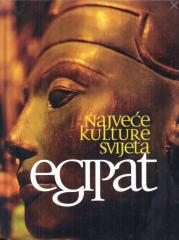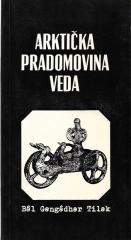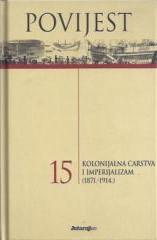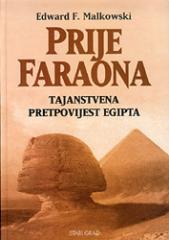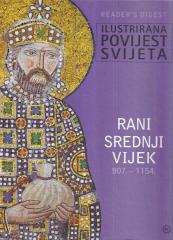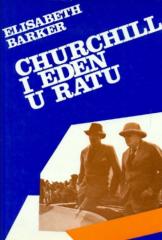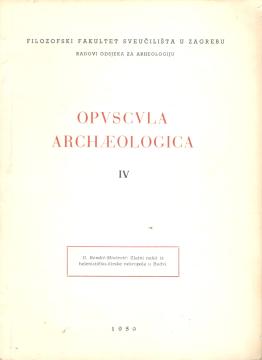
Opuscula archaeologica IV: Zlatni nakit iz helenističko-ilirske nekropole u Budvi
Članak predstavlja klasičnu analizu arheoloških nalaza iz helenističkog perioda (III-II vek pre nove ere) u nekropoli severno od antičke Budve (današnja Crna Gora), otkrivenoj pedesetih godina 20. veka.
Autor katalogizuje i detaljno opisuje zlatni nakit iz 12 grobova: spiralne narukvice u obliku zmija napravljene od tankog zlatnog lima (težine 10-20 g), minđuše sa piramidalnim dizajnom (prevrnute piramide sa granuliranim ukrasima), kružne zoomorfne minđuše sa motivima lava i bika, fibule, prstenje sa intaljoom i lančiće sa privescima. Analizira tehnike obrade (kovanje, filigran, granulacija), stilove (helenistički uticaji sa ilirskim varijantama) i kontekst: nakit je pronađen u ženskim i muškim grobovima sa keramikom, bronzom i gvožđem, što ukazuje na elitne rituale sahranjivanja. Rendić-Miočević ga upoređuje sa paralelnim nalazima iz Glasinca, Trebeništa i grčkih centara, datirajući ih u makedonsku fazu helenizma.
Ovi predmeti, ukupne težine preko 200 g, retki su primeri visokovrednog zlata u ilirskom regionu, svedočeći o bogatstvu lokalnih plemena (verovatno Duklje ili Labeata). Motivi (zmije kao simbol zaštite, zoomorfni elementi) otkrivaju sintezu grčkih uticaja i autohtone simbolike, a kvalitet izrade ukazuje na majstore iz Makedonije ili Epira. Nalazi potvrđuju Budvu kao važan trgovački i kulturni centar na Jadranu.
Delo obogaćuje sliku ilirske civilizacije, ilustrujući helenističku akulturaciju na Balkanu: širenje grčke umetnosti kroz trgovinu i migracije, društvenu hijerarhiju (nakit kao statusni simbol) i etničke interakcije. Kao jedna od prvih detaljnih studija ilirskog zlata, uticalo je na kasnija istraživanja (npr. u Trebeništu, Apolonija), pomažući u rekonstrukciji balkanskih puteva i prelaska iz gvozdenog u helenističko doba. Ostaje referenca za razumevanje predrimskog Jadrana i ilirsko-grčkih veza.
Jedan primerak je u ponudi
